16 Sep 2022 | Belarus, Brazil, China, Iran, North Korea, Opinion, Russia, Ruth's blog, Saudi Arabia, Sri Lanka, Turkey, United Kingdom
The United Kingdom is in a period of national mourning, marking the passing of our head of state, Her Majesty Queen Elizabeth II. Global media has been transfixed, reporting on the minutiae of every aspect of the ascension of the new monarch and the commemoration of our former head of state. While the pageantry has been consuming, the constitutional process addictive (yes I am an addict) and the public grief tangible – the traditions and formalities have also highlighted challenges in British and global society – especially with regards to freedom of expression.
We have witnessed people being arrested for protesting against the monarchy. While the protests could be considered distasteful – I certainly think they are – that doesn’t mean that they are illegal and that the police should move against them. Public protest is a legitimate campaigning tool and is protected in British law. As ever, no one has the right not to be offended. And protest is, by its very nature, disruptive, challenging and typically at odds with the status quo. It is therefore all the more important that the right to peacefully protest is protected.
While I was appalled to see the arrests, I have been heartened in recent days at the almost universal condemnation of the actions of the police and the statements of support for freedom of expression and protest in the UK, from across the political system.
What this chapter has confirmed is that democracies, great and small, need to be constantly vigilant against threats to our core human rights which can so easily be undermined. This week our right to freedom of expression and the right to protest was threatened and the immediate response was a universal defence. Something we should cherish and celebrate because it won’t be long before we need to utilise our collective rights to free speech – again.
Which brings me onto the need to protest and what that can look like, even on the bleakest of days. On Monday, the largest state funeral of my lifetime is being held in London. Over 2,000 dignitaries are expected to attend the funeral of Her Majesty, Queen Elizabeth II, in Westminster Abbey. The heads of state of Russia, Belarus, Afghanistan, Syria, Venezuela and Myanmar were not invited given current diplomatic “tensions”. While I completely welcome their exclusion from the global club of acceptability, it does highlight who was deemed acceptable to invite.
Representatives from China, Brazil, Saudi Arabia, Turkey, Iran, North Korea and Sri Lanka will all be in attendance, all of whom have shown a complete disregard for some of the core human rights that so many of us hold dear. Can you imagine the conversation between Bolsonaro and Erdogan? Or the ambassador to Iran and the vice president of China?
While I truly believe that no one should picket a funeral – the very idea is abhorrent to me – that doesn’t mean that there are no other ways of protesting against the actions of repressive regimes and their leadership, who will be in the UK in the coming days. In fact the British Parliament has shown us the way – by banning representatives of the Chinese Communist Party from attending the lying in state of Her Majesty – as a protest at the sanctions currently imposed on British parliamentarians for their exposure of the acts of genocide happening against the Uyghur population in Xinjiang province. This was absolutely the right thing to do and I applaud the Speaker of the House of Commons, Rt Hon Lindsay Hoyle MP, for taking such a stance.
Effective protest needs to be imaginative, relevant and take people with you – highlighting the core values that we share and why others are a threat to them. It can be private or public. It can tell a story or mark a moment. But ultimately successful protests can lead to real change. Even if it takes decades. Which is why we will defend, cherish and promote the right to protest and the right to freedom of expression in every corner of the planet, as a real vehicle for delivering progressive change.
7 Jul 2022 | News and features, Turkey, Turkey
In the name of counter-terrorism, police raided the houses of journalists in Diyarbakır, in the Kurdish region of Turkey, on 8 June. They took into custody 19 journalists, two media employees and one citizen, who had given an interview to a journalist. Two criminal investigations were announced to target “the Press Structure of the Kurdish Workers Party (PKK) and Kurdistan Communities Union (KCK)”.
Journalists who work in eastern Turkey face tremendous pressures as they are almost always the ones who expose rights violations by the state in a conflict between Turkish authorities and Kurdish groups, which has been going on since the early 1980s. The PKK has called for more rights for Kurdish people, and the armed conflict has cost over 40,000 lives. Turkey considers the PKK a terrorist organisation, as do the EU and US.
In addition to the journalists’ houses, police raided the offices of three production companies and the women’s news agency Jin News in an unlawful manner. The search conducted at the Jin News agency was carried out without any representative of the agency being notified or present. The police are yet to provide a record of what has been confiscated.
After being extended twice, the custody period eventually amounted to eight days. In her indictment-like extension petitions, the prosecutor directly accused the journalists without presenting any evidence. Furthermore, she justified the extensions by saying the confiscated material needed extensive examination. According to the lawyers, however, this long custody period served the manufacturing of new evidence.
The interrogation of the journalists began on 15 June at around 9am. The prosecutor questioned the journalists about their professional activities. She asked why they worked at their respective media outlets, why they produced particular programmes or news articles, and why they used specific expressions.
While neither the lawyers nor the journalists were granted access to the investigation file – which violated their right to defence – investigation details were leaked to media organisations close to the government. According to these news reports, journalists are accused of “operating as the PKK and KCK Press Structure.”
After an interrogation lasting nearly 20 hours, the prosecutor referred 18 journalists, two media employees and one citizen to the Diyarbakır 1st Criminal Judgeship of Peace and requested their arrest on suspicion of “membership of a terrorist organisation”. Within 15 minutes, the judge ruled to arrest 16 of the journalists. In the decisions, the judge did not refer to any concrete evidence other than the testimonies of defectors from the PKK who claimed that the journalists produced content for Sterk TV, Medya Haber TV, Jin TV and Rohani TV – all of which are considered as PKK outlets by Turkish authorities. The judge released four journalists, one media employee and the sole citizen from custody, along with judicial control measures.
This is not an isolated incident. A recent example is when five journalists reported on two villagers who were tortured and thrown out of a helicopter by security forces in Van, also in eastern Turkey. Four of them were held in pre-trial detention for six months until the first hearing. Accompanied with discrediting campaigns on social and mainstream media, these journalists were tried under terrorism charges and were eventually acquitted. Acquitted or not, this recent operation is the largest of its kind targeting the Kurdish press in recent years. It is reminiscent of the infamous “KCK Press Trials”, in which 46 journalists and media employees have been standing trial for the past 10 years.
This latest operation targeting Kurdish journalists signals that the government is once again flexing its muscles to silence journalists in the region ahead of the upcoming elections next year.
The 16 arrested journalists:
Lezgin Akdeniz: Camera operator, TV show producer
Safiye Alagaş: Jin News Director
Serdar Altan: Freelance journalist, Dicle Fırat Journalists’ Association (DFG) Co-chair
Zeynel Abidin Bulut: Xwebûn editor, DFG executive
Ömer Çelik: TV show host, former Mesopotamia News Agency editor
Suat Doğuhan: Camera operator, Pel Production owner
Mehmet Ali Ertaş: Xwebûn Editor-in-chief
Ramazan Geciken: Pel Production camera operator
Mazlum Doğan Güler: Piya Production camera operator
İbrahim Koyuncu: Camera operator, video editor
Abdurrahman Öncü: Pel Production camera operator
Aziz Oruç: Mesopotamia News Agency editor
Mehmet Şahin: Xwebûn columnist, teacher
Neşe Toprak: Pel Production TV show producer
Elif Üngür: Piya Production TV show host
Remziye Temel: Piya Production accountant
For more details on the arrests, visit MLSA.
14 Jan 2022 | Armenia, Greece, News and features, Turkey
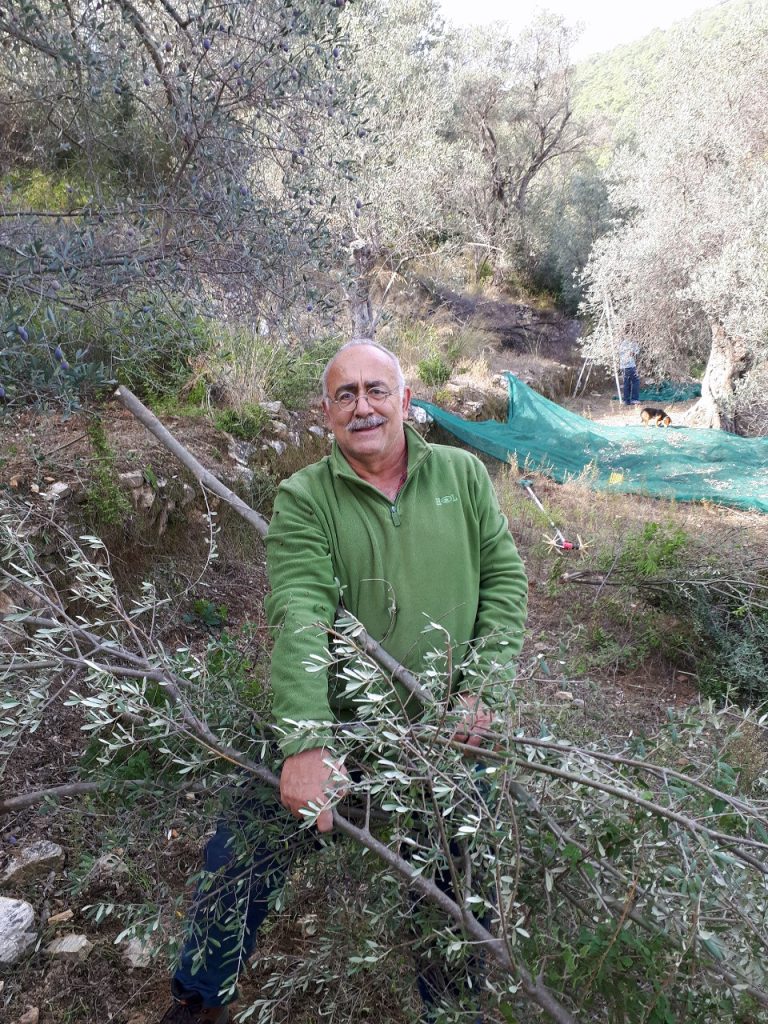
Sevan Nişanyan at home in Samos
A prominent Turkish-Armenian academic faces deportation from Greece after being labelled an “undesirable foreigner” in what he sees as punishment for creating a database of Greek placenames and how they have changed through history.
Sevan Nişanyan, born in Istanbul in 1956, is a linguist and compiler of the hugely comprehensive Etymological Dictionary of the Turkish Language.
In 2012, he wrote a blog post about free speech arguing for the right to criticise the Prophet Mohammed which incensed then prime minister and now president Recep Tayyip Erdogan.
Speaking to Index in an interview at the time, Nisanyan said: “I received a call from [Erdogan’s] office inquiring whether I stood by my, erm, ‘bold views’ and letting me know that there was much commotion ‘up here’ about the essay. The director of religious affairs, the top Islamic official of the land, emerged from a meeting with Erdogan to denounce me as a ‘madman’ and ‘mentally deranged’ for insulting ‘our dearly beloved prophet’”.
The following year he was sentenced to 13 months in jail for his “insults”.
While in prison, he was further charged with violations of building regulations in relation to the village of Şirince in Turkey’s Izmir Province and particularly the mathematical research institute established there in 2007 by Ali Nesin and in which Nasanyan was heavily involved.
Nişanyan was charged with 11 violations of the code leading to a total prison term of more than 16 years.
At the time, he and others were convinced that this was a political case, because jail time for building code infringements is almost unheard of in Turkey and he was merely being punished for his earlier views and blog post.
In 2017, Nişanyan escaped from the Turkish low security prison where he was being held and travelled by boat to Greece, where he claimed asylum and was granted a temporary residence permit.
He has since been living on the island of Samos and married a Greek citizen in 2019. While there he successfully applied for an Armenian passport and dropped his asylum application.
Everything changed on 30 December 2021 when he was denounced by the Greek police as a national security threat. His supporters say his name was added to what is known as the EKANA list of undesirable foreigners, administered by Greece’s Ministry of Public Order. At a recent press conference, Nişanyan claimed the reasons for the inclusion of his name on the list is considered a state secret.
The fast-growing use of the EKANA list has been called a “particularly worrying development” by the European Parliament’s Policy Department for Citizens’ Rights and Constitutional Affairs.
“The Ekana list has become a favoured tool of the Greek police, primarily used against refugees who are denied asylum,” says Nişanyan.
Nişanyan says he has no concrete idea why his own name is on the list but he can speculate.
“There have been all sorts of accusations of me working against Greek national ideas,” he says.
He suspects it may be related to his creation of the Index Anatolicus, “a website looking at the toponomy of placenames, the authoritative source on the name changes to 53,000 Turkish places”.
“I recently decided to expand into Greece, North Macedonia, and Armenia,” he says.
He recognises it is a sensitive issue. In 1923, Greece and Turkey agreed to a population exchange after the fall of the Ottoman Empire which saw 1.3 million people made refugees.
“A hundred years ago, none of the towns and hamlets in northern Greece had Greek names. I have been accused by lots of insignificant people that this was a grave betrayal of the Greek motherland. That is absurd.”
On 7 January, the court ordered Nişanyan’s release saying he presented no risk of fleeing but gave him 15 days to leave the country voluntarily. He appealed against the ruling but this was thrown out on Thursday 13 January, meaning he must now leave by 22 January or face forced deportation. His request to be removed from the EKANA list has also been turned down. Nişanyan has appealed both decisions with the Administrative Court of the First Instance in Syros.
Nişanyan claims he is not a threat and that deportation would be particularly harsh on his wife, who is seriously ill.
He believes he has also become persona non grata as a result of a less welcoming attitude towards foreigners in the eastern Aegean in recent years.
“There has been enormous panic and paranoia over the refugees. Three years ago, people in Samos were divided on the refugee issue. Now you can be literally lynched if you say anything positive about refugees. It is a huge emotional mobilisation against all refugees and not surprisingly, part of that hostility has been directed towards Westerners and the NGOs who have ‘invaded’ the islands over the past few years.”
Where can Nişanyan go?
“I am tired and getting old. My wife’s health is a huge disaster. My normal instinct would be to stay and fight as I have been a fighter all my life. Now I am a weary,” he says.
“My three grown children are in Turkey and I have property there. However, I cannot go back unless there is some sort of presidential pardon.”
“The reasonable thing would be to go to Armenia, sit out the storm and come back some time,” but says that his chances of getting back to Greece appear slim.
It is also unclear whether his wife will be well enough to accompany him.
Nişanyan hopes the government comes to it sense and reconsiders an “utterly stupid decision which was obviously taken at the instigation of a paranoid and ignorant police force”.
He says, “I don’t think ever in the history of this country has a person who has not committed any crime whatsoever been deported to Armenia, historically one of Greece’s closest friends. It doesn’t make any political sense.”
Nişanyan has also gained support from the Anglo-Turkish writer and Balkans expert Alev Scott.
Scott told Index, “It is ironic that Sevan is hated in Turkey as an Armenian and in Greece as a Turk – and in both countries, as an outspoken intellectual who challenges conservative beliefs and nationalist sensibilities.
“He fled from a Turkish prison to a Greek island and embraced it as his new home; sadly, in recent years the Greek islands have become more and more hostile to foreigners as the refugee crisis worsens, and Sevan is a victim of this development.
“He is a big local presence on Samos, and receives a steady stream of visitors from Turkey and elsewhere – clearly, this has not gone down with locals, or with police,” she said.
“Sevan’s scholarly work on the etymological roots of place names raised hackles in Turkey and his proposal of a similar project on Greek place names has had a similar effect. Anything that challenges the existing nationalist narrative in both countries is, of course, highly controversial. It is beyond absurd that this academic – outspoken though he may be – presents a national security threat to Greece.”
Nişanyan also claims support for his case at the highest levels in the country – “former prime ministers, people high up in the judiciary system and journalists”.
“They seem shocked,” he says. “They cannot imagine something like this happening in a presumably democratic country.

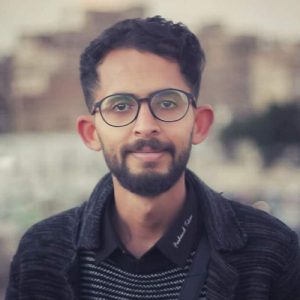 Yemeni artist Thiyazen Al-Alawi uses his craft to shed light on the destructive situation in Yemen through street art campaigns. He hopes to inform the public of what the war has done to his homeland.
Yemeni artist Thiyazen Al-Alawi uses his craft to shed light on the destructive situation in Yemen through street art campaigns. He hopes to inform the public of what the war has done to his homeland.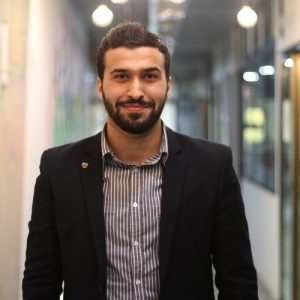 Moe Moussa is a journalist, podcaster, poet, and the founder of the Gaza Poet Society. He uses various forums and mediums to amplify the voices of Palestinians.
Moe Moussa is a journalist, podcaster, poet, and the founder of the Gaza Poet Society. He uses various forums and mediums to amplify the voices of Palestinians.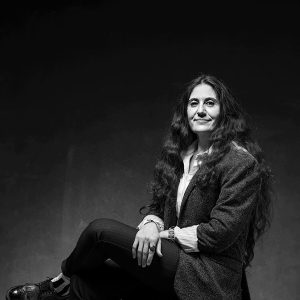 Fatoş İrwen is a Kurdish artist and teacher from Diyarbakır, Turkey working with a variety of materials and techniques.
Fatoş İrwen is a Kurdish artist and teacher from Diyarbakır, Turkey working with a variety of materials and techniques.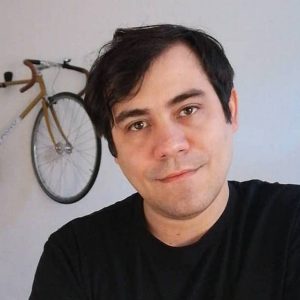 Hamlet Lavastida has been described as a political activist by way of art. Lavastida uses his art to document human rights abuses in Cuba and to criticise Cuban authorities.
Hamlet Lavastida has been described as a political activist by way of art. Lavastida uses his art to document human rights abuses in Cuba and to criticise Cuban authorities.